We are days away from what could be the most pivotal election of our lifetimes.
Being based in Toronto, it’s tempting to cling to the physical and ideological distance we believe we have from the United States. “It can’t happen here” and “we’re different” are instinctual safety blankets we reach for to assuage our anxieties. But as we know deep down, and as many of the women we’ve spoken to in the last few years have told us, it would be ignorant to believe that the results of this election won’t have repercussions that affect Canada, not to mention many other countries around the world.
We could be on the cusp of having the first ever woman of colour as president of the United States—a huge, historical moment. But we also have to understand how dismal the alternative is. How high the stakes are. It can be difficult to find solace or hope when the rights, safety and livelihoods of so many people hang in the balance: women, people of colour, the LGBTQIA community, immigrants, disabled people, the unhoused, and the millions whose lives reflect any number of intersections of these communities.
Heading into the weekend before this election, there is a palpable tension. A heaviness. And with what’s on the line, rightfully so. Our team can’t cast a vote in this election, but wow, do we feel the pull of all the division and fear. This looming threat to our safety, our agency, can so easily seep into not only our minds but also our bodies.
Art is vital in times like these. It’s a tonic for the soul. Art can give us courage to speak up. Wisdom to share with those around us. Space to reflect on our past and present, and a way to imagine what the future could look like. It can offer moments of levity or joy on an otherwise dark day.
It can also be a beautiful vehicle for information. A pathway to a deeper understanding of the world around us. Art helps us truly understand what’s at stake for real people. It’s a chance to hear their stories and empathize with their experiences. Whatever the results of this upcoming election, we all have a responsibility to educate ourselves, reflect on the rights people are losing, and the ways in which we can fight towards a more free world.
If you’re looking for a way to cope with the fears or tension you may be feeling this weekend, our team dedicated some time to sharing the works of art that have been on our minds in these uncertain times. These are books, films, documentaries and plays that have moved us and educated us. Made us feel seen as women. Gave us hope to hold on to and a future to aspire to.
I will be honest, whenever I think about the US election my heart sinks. I tend to avoid the topic out of fear and discomfort. I remember being in 10th grade when Trump was first elected. We had been engaging in lots of conversation in my French class leading up to the election. A way for my French teacher to encourage our use of the language by forcing us to argue with each other. I would fight until I cried about every issue under the sun. Immigration, trans rights, the economy, the right a woman has to not be assaulted by a man who will become president. The boys always succeeded in getting a rise out of me.
The day Trump was elected I came to school feeling like I myself had lost the election. A passionate young Canadian with zero power who felt her voice was silenced. I don’t remember if I spoke up in French class that day but I remember feeling like all this emotional energy I had put into educating myself and others was rendered useless. That my opinions as a young woman didn’t matter and that no one cared what I had to say anymore.
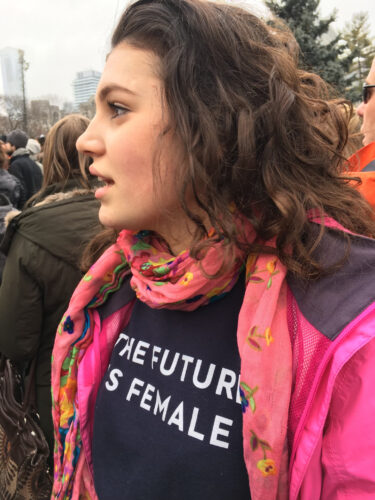
Women’s March, 2017
8 years later, I am 23 years old and have a much more profound understanding of what being a woman in the western world entails. I hold a lot less hope and I understand that it takes a lot more than a well thought out argument to convince a man that your voice, your choice, and your life matters. You have to be a little manipulative, you have to be sexy, you have to be intelligent but in a way that makes men feel they are still more intelligent than you. You have to be kind and also strong. You have to protect yourself from all the world’s evils as if you have the power to reduce sexual assault and bridge the wage gap that still exists for so many women. It feels impossible.
It’s too much. So, I avoid it. I don’t avoid it in a major way, but I avoid letting myself be consumed by the fear of what that means for us here in Canada. What it means for all the women just south of our border. But with the election coming up in only a few days – I know that it’s time to open my eyes and face the music.
My friend Nisa from Turkey says: you don’t elect a candidate to do the work, you elect a candidate that allows you to fight them on what needs doing. After elections, we must continue to be in opposition with our government. To fight for a better world. That is being politically active. Although imperfect, Kamala is the candidate that you can have a conversation with. So if she wins, and I hope she does, we must continue the conversation and continue the fight.
The art I’m suggesting we consume this next week is What The Constitution Means to Me by Heidi Schreck, a play showing at Soulpepper Theatre in collaboration with Nightwood Theatre, running from November 1-10. I was graciously let into their tech rehearsal as a theatre practitioner (not a journalist) and can say with my whole heart that this is the kind of play that changes the world. It’s joyful, educational, moving, sad, and hopeful. If you are looking for a place to feel seen as a woman or understand the US and Canadian constitutions in a more profound way — you must watch this play before it goes away.
– Mercedes Isaza Clunie, Digital Content Producer
As we inch closer to the upcoming presidential election in the United States, it is in times like these that I attempt with white knuckles to continue to hold empathy in my heart and make every attempt to organize for a better future. In doing so, my community has led me to the following resources for keeping my mind open, my heart full and my eye towards a better future:
Sing Sing
As a theatre artist and a born-and-bred arts lover, I have always possessed the knowledge of how important access to art is to one’s soul. Through the retelling of the real story of a production in Sing Sing Correctional Facility’s Rehabilitation Through The Arts program, I was brought to tears many times by this film, Sing Sing. Starring Colman Domingo, as well as real-life formerly incarcerated men who were themselves alumni of this program during their incarceration, I was deeply moved by the ways in which who is given access to arts (and who isn’t) has such a profound effect on our communities.
I was left to reflect on how, when given the chance to pursue an artistic practice like theatre, people of colour not only learn important skills that push us to succeed both professionally and interpersonally, but thrive— excel, even! I am left saddened by the number of artists we’ve yet to be moved by because of the disproportionate rate with which black and brown people are imprisoned or simply refused access to an artistic outlet. But mostly, I am left with optimism that a future where restorative justice, arts education and rehabilitation, and an end to the prison industrial complex go hand in hand.
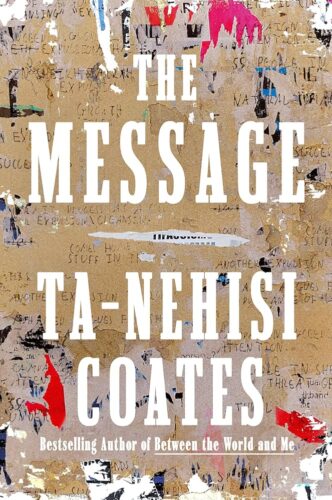
The Message by Ta-Nehisi Coates
The Message
No matter who wins in this election, it’s important to remember that what’s happening in the western world is not the only narrative worth considering. As our news feeds are plastered with images of hospitals, homes and places of worship being decimated, thousands displaced and even more murdered, I am encouraging us all to continue to expand our knowledge of the world around us and The Message by Ta-Nehisi Coates is a perfect tool to achieve that goal.
In it, acclaimed journalist Ta-Nehisi Coates describes his visits to Dakar, Senegal; Chapin, South Carolina; and the West Bank and East Jerusalem, the latter of which is where he sees with devastating clarity how easily we are misled by nationalist narratives, and the tragedy that lies in the clash between the stories we tell and the reality of life on the ground. While the United States continues its complicity in the erasure of Palestine, we must continue to work towards freedom and liberation for all and that begins with keeping ourselves informed.
Girls State
On the cusp of what may be the country’s first female president, the Emmy-award winning documentary Girls State feels especially poignant. Following 3 participants of a week-long immersive democratic experiment for teen girls in Missouri, aptly titled Girl State, this documentary is a great look into the minds of the future of American politics. Learning how to build a government from the ground up, these young women campaign for roles in their self-made government, including positions on the Supreme Court, governorship and attorney general. Featuring girls from a diverse range of backgrounds and political views, it serves not only as a reminder of the inner workings of American politics but also as a peek into the minds of aspiring future leaders and finally as a sobering reflection on the role of misogyny in politics.
— Taija Shonée Chung, Editorial & Social Media Intern
One of the (many) things that scare me about this election cycle is how one side has so easily and so effectively weaponized disinformation and misinformation. How untrue, sensationalized claims like “post-birth abortions” are rallying cries that mobilize swaths of the population to support policies that result in death and traumatizing experiences for countless people simply seeking basic healthcare. How this so perfectly feeds into the lack of choice they want for us. The control they want over us. How shame and fear and misogyny are baked into so many of their policies, and how that only seems to make them stronger.
When I interviewed Dr. Jen Gunter earlier this year, I remember thinking: she is the health teacher I needed back in high school. I would have settled for anyone with something more to offer than one week of gender-segregated, abstinence-only, shame-tinged sex ed. Books like Blood, or any of Dr. Gunter’s books, are antidotes to the pervasive culture of shame and misinformation that is on full display in the lead-up to this election.
With 30+ years of experience as an OB/GYN, Dr. Gunter takes readers back to the basics, laying out science-backed information about menstruation, hormones, contraception, and abortion. She busts decades-old tampon myths, provides helpful info about painful periods, and explains the differences between birth control options. Just as important as the facts is the tone—honest, but free of judgment and shame.
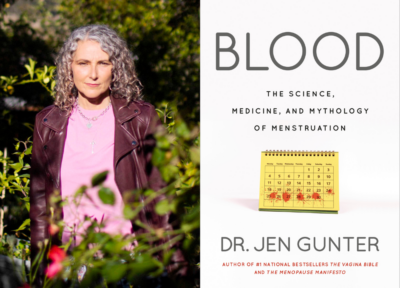
Blood by Dr. Jen Gunter
For some, this might seem very rudimentary. But having these basic facts and being able to talk about them in a safe environment free of judgment is a massive first step towards being able to make informed choices about your reproductive health. Especially if you’ve been entrenched in not-so-scientific ideologies your entire life. It’s a first line of defence against a patriarchal society that in no way prioritizes your health, that will shame you into silence and ignorance.
Knowing how to advocate for yourself, and knowing which resources you can access if you have the privilege to do so, is invaluable. Having this foundation of knowledge is even more crucial at a time when rights, freedoms and access are systemically being stripped away. And, as Dr. Gunter explains, misinformation is something we all need to be mindful of, especially online. I personally see a completely whack tweet about periods or birth control go semi-viral at least once a week.
As someone still on her journey from a terrified, ill-informed teen to an empowered, body-positive woman, seeking out this knowledge has helped me take some power back from a system that failed me. Everything about this election can make you feel so powerless, so out of control, even if you are able to cast a vote. But having a solid foundation of knowledge about your own body, free of shame— that is something you can hold on to no matter the result on Tuesday.
– Annemarie Cutruzzola, Editor
As the sole Gen Xer on the SDTC team, I often think about what it was like growing up in our era compared to what this generation experiences. We like to get nostalgic about how things were better before social media rewired our brains, and how we got to roam free without parents tracking us. But, as young girls, we were also scared to lift our voices and demand attention. We were latch-key kids who had to maneuver what was at times a scary world with little adult supervision. It made us creative, fierce, resourceful.
The bold strides women have made since I was a young girl, the deep sense of agency that we have honed over the years, breaking glass ceilings… all of that is on the ticket right now. And because we have had to fight for where we are today, us older ones know what the world can look like if we are silenced again.
My suggestions for relevant and vital work to watch and read right now are:
If These Walls Could Talk, streaming on Crave. It is a sobering look at three different generations of women grappling with unplanned pregnancies and how they cope. It follows the plights of three women and their experiences with abortion. Each of the three stories takes place in the same house, 22 years apart: 1952, 1974, and 1996.
I ask what would happen now in 2024 under an abortion ban? Does that story look like the one from 1952? And what does that mean for women everywhere?
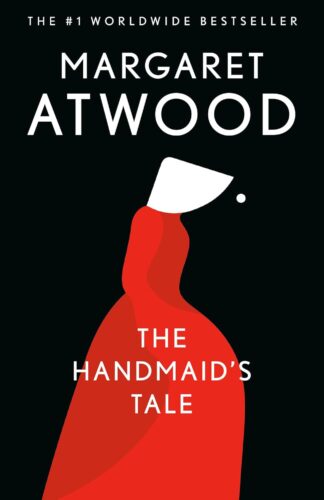
The Handmaid’s Tale by Margaret Atwood
The Handmaid’s Tale, by Margaret Atwood. This book is everything we ever need to read to showcase a world where women are silenced and reduced to human incubators. The award-winning television adaptation is an excellent source as well.
As a mother of 3, I love my children with my whole being. And I am a great mother not because I birthed them, but because through my work, my friendships, my attempts, my failures and my service to my community, I have shown them what a full and whole person looks like. That is what motherhood truly is.
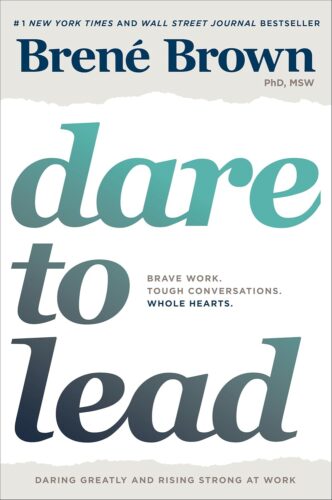
Dare to Lead by Brené Brown
To provide some hope, I strongly urge you to read, listen to, and follow Brené Brown. Dare to Lead is one of the best books on leadership that I have ever read. What it takes to be a leader of substance with integrity and a whole heart is all laid out in this book. However next week shakes out, we are going to need strong, courageous leaders to help navigate what our delicate future looks like.
– Andréa Grau, Owner


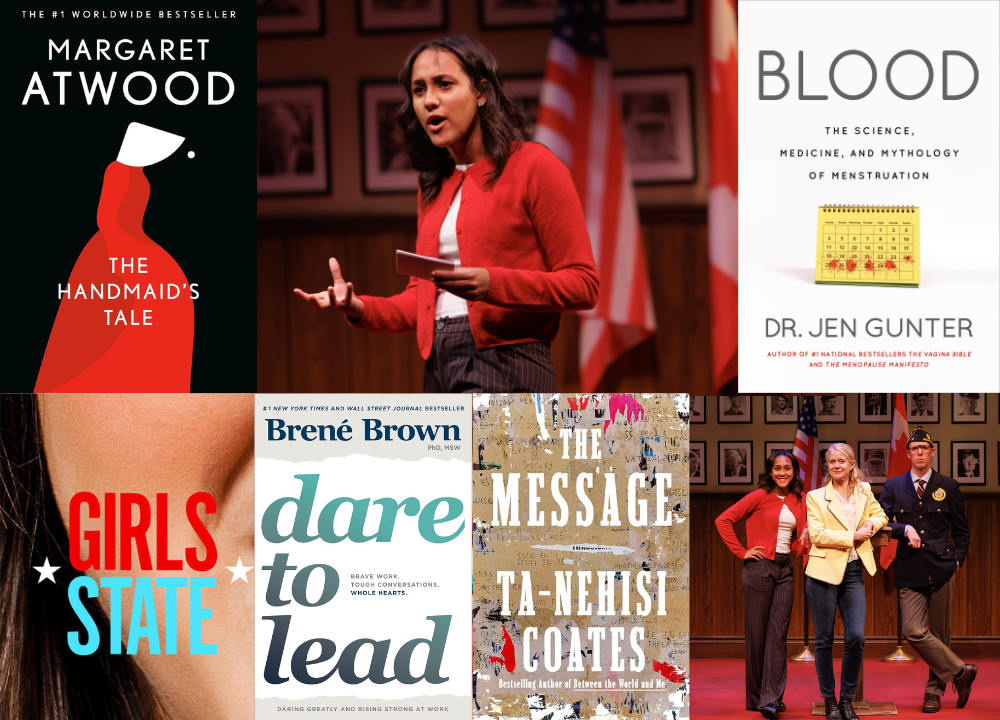

 Follow Us On Instagram
Follow Us On Instagram
